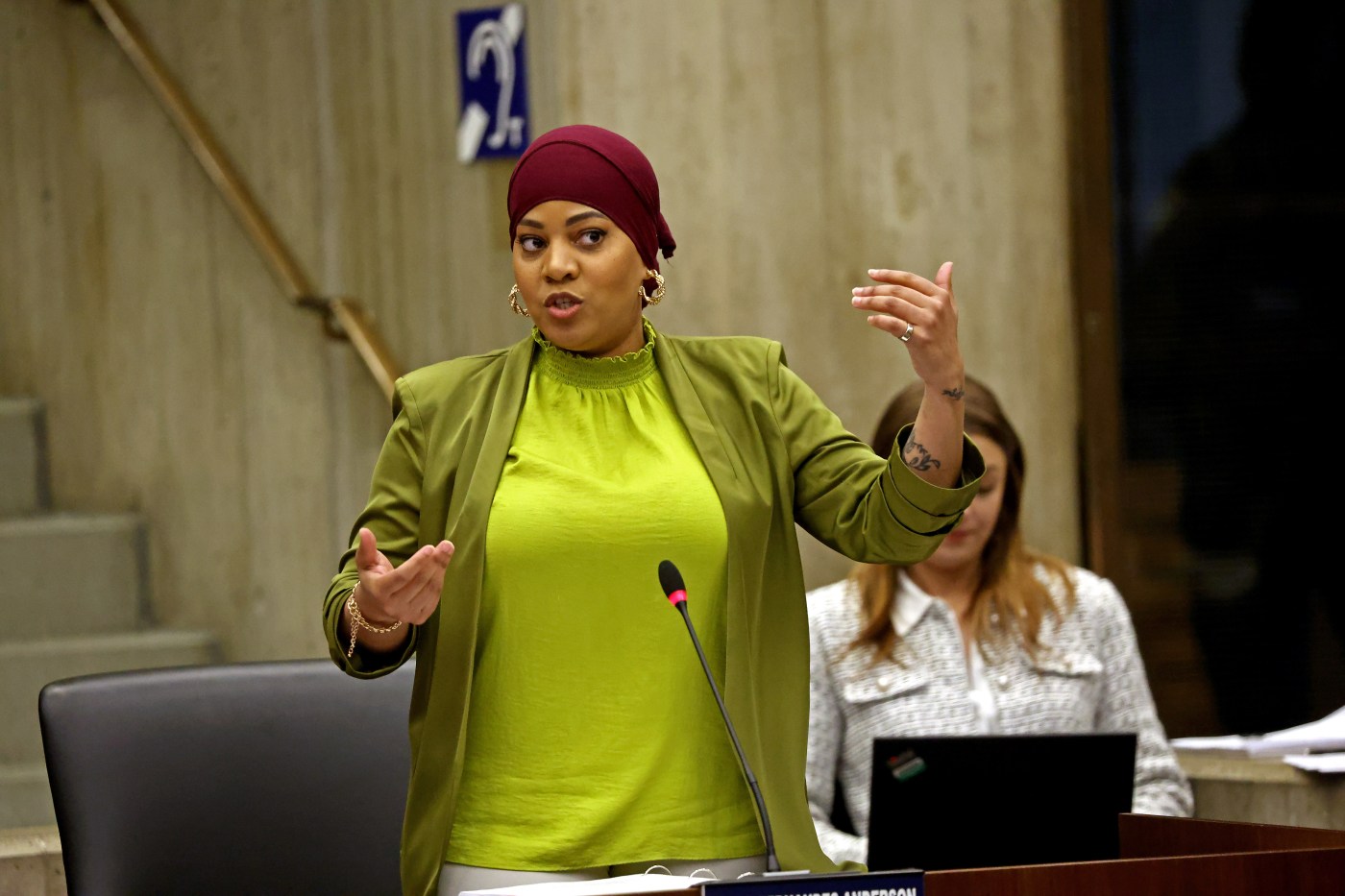
Boston City Council punts congestion pricing discussion to future hearing
A Boston city councilor who brought a congestion pricing measure before the body Wednesday said her push for a discussion does not necessarily mean that she is taking a position on implementing a policy that would tax drivers for Hub access.
“While we want to be transit-oriented and we agree that carbon emissions is the goal for us, we cannot necessarily force policies or implementation of practices that essentially disenfranchises or isolates those who are not prepared to transition into different lifestyles,” City Councilor Tania Fernandes Anderson said.
“Some people have flexibility of access, of money, of affluence, so they’re able to ride their bikes and get to work or work from home,” she added. “That level of flexibility can offer you different options of transportation.”
In her hearing order, referred to the committee on planning, development and transportation for a hearing after relatively little discussion, Fernandes Anderson had pointed to congestion pricing as a “prospective viable option in Boston,” saying that it is in the process of possible utilization in New York and New Jersey.
“A set fee placed on drivers of various vehicles could bring money and resources toward other elements of the community, reduce traffic, increase transit use and improve air quality,” Fernandes Anderson wrote in the hearing order.
The proposal, which Fernandes Anderson said is simply a call for a discussion, drew mixed reactions from across the political spectrum, in the lead-up to Wednesday’s City Council meeting.
Proponents described it as a tool that could ease traffic congestion and raise much-needed funding for transportation, particularly the cash-strapped MBTA, while opponents criticized a policy that would tax drivers at a time when public transit is unreliable, and the state and T are pushing for low-income fates.
While congestion pricing could take a number of forms, transportation advocate Chris Dempsey told the Herald Tuesday that Boston could incorporate a tolling option that would charge drivers for traveling within or into a congested part of the city, which is what New York City is planning to do.
The city could also offer drivers a discount for traveling at off-peak hours as a way to ease congestion, Dempsey said. A new tax would require state approval.
The only other councilor to speak on the hearing order was Ed Flynn, who asked whether Fernandes Anderson was seeking that type of zoned congestion pricing, which she said she was “not in a position to answer.”
In a statement to the Herald after the meeting, Flynn said he was opposed to bringing a congestion pricing policy to Boston.
“With a struggling economy, cuts to city and state services and a slowdown in development and construction, now is not the time to raise taxes for Boston residents and businesses,” Flynn said. “We need to support businesses throughout Boston and a tax increase will have a negative impact on Boston’s economy.”
MassGOP Chair Amy Carnevale was critical of the idea as well, saying in a statement that, “Implementing a congestion charge would directly impact Boston residents reliant on commuting to work by car.”
“Following the footsteps of New York, Bostonians might encounter a hefty $15 or more fee for their daily commute,” she said. “Such a measure is unsustainable and unfair, particularly for individuals compelled to drive in and out of the city for work purposes daily.”


